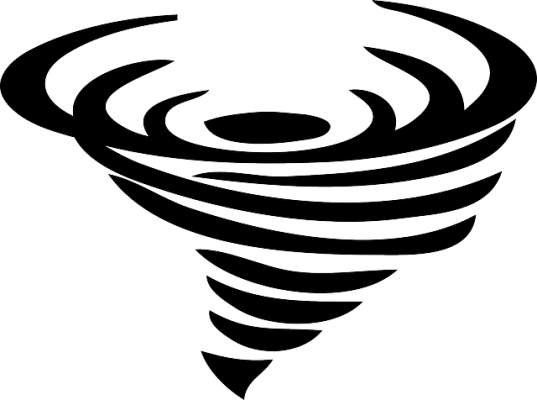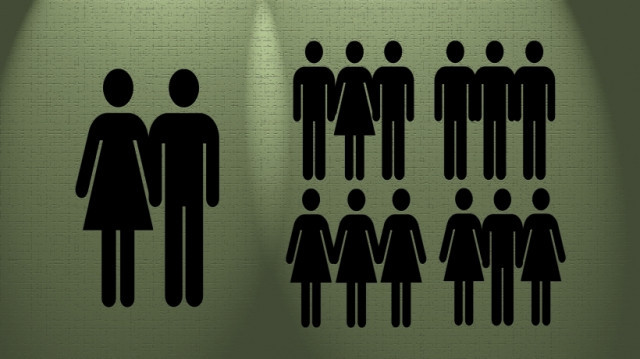Evolutionary Blog
"Falling in love is the greatest story of addiction in existence." -Philippe Lewis I toyed with this idea for years. Along with the idea that all romantic love is delusion. Delusion and addiction. Why else does "absence make the heart grow fonder" if not because you aren't dealing with the reality of who they are - but rather who you imagine them t...
Copyright
© © 2017 Jason D McClain, World-Wide Rights Reserved.
[Note to the reader: "God" is used throughout as a signifier to point to wherever you put your worship. It could be conventional religions as I will mainly address, but you could just as easily replace it with Gaia if you "put your worship" there--if the environment is your ultimate concern. or you could replace it with polytheistic beliefs such as Hinduism. Or maybe you put your worship in the Universe, Consciousness, or Community. Consider that whatever your ultimate concern is, the concepts in this article can apply to that thing as "God" for you. Doing this will allow you to get the most from this article. -Jason D McClain]
Is Your Relationship to God Wrecking Your Relationship With God?
It’s a provocative question, isn’t it?
Why even ask it? It is fraught with predicable emotional triggers and will produce reactions that may blur the importance and the point of the topic at hand.
We could use your relationship to your "self" or your relationship to others or even your relationship to money. The fact remains that we could use any of those concepts--any of those signifiers--to get to what we are pointing at and we will use a couple of them as lead-in examples because of their familiarity--but it would not be as effective to stop there for our larger conversation; not as effective as getting to the very root of our relationship to and with our deepest and highest stages. But even more to the practical: we will use God for the simple fact that there is no concept or question more galvanizing—making us sit up in our chair and pay attention--than questioning our very relationship to and with the Divine.
So we use “God”.
Before we begin to explore the question, we need to lay the ground on which we will stand: stages of egoic and emotional development. Stages that we interpret the world through and react emotionally from. Stages through which we will interpret every aspect of our lives--events occurring around us, the actions of others as they relate to us, the world we navigate through politically, economically, romantically, and, yes, our spirituality and the nature of the Divine.
So if we are to examine our relationship to God (or “the Divine) then we must begin with an understanding of the lens we gaze through.
"God is like a mirror. The mirror never changes, but everybody who looks at it sees something different." --Rabbi Harold Kushner
From pre-personal to personal to trans-personal. From vengeance to justice to grace. From pre-rational to rational to trans-rational. From ego-centric to enthno-centric or gender-centric or nationalistic to world-centric. From unconscious to conscious to super-conscious. These are just some of the ways we can label the grossest stages of development of the Self—and they are stages of increasing wholeness and increasing embrace. Each stage transcends, yet also include the benefits of the former. Each is noted for its increase in capacities and increase in the ability to hold an ever-increasing number of perspectives. We could also think about these stages as an expansion of what an individual can identify with or as. From ego-centric to ethno-centric / gender-centric / nationalistic to world-centric; identifying as just an individual to identifying as a member of a community or collective of individuals to identifying as a member of a global community—a citizen of the planet and a member of its ecosystem. Plainly put: our stage of self-development will determine our world-view—and that world-view will evolve over time. And that evolution will have a directionality.
Human development can be divided into three major phases: pre-conventional, conventional and post-conventional, or pre-personal, personal and transpersonal (Wilber, et.al., 1986). This applies to the development of cognition, morality, faith, motivation and the selfsense. The infant enters the world unsocialized, at a pre-conventional stage, and is gradually acculturated into a conventional world-view, whether it be religious or secular. A few individuals develop further into post-conventional stages of post-formal operational cognition (Pfaffenberger, et.al., 2009), post-conventional morality (Sinnott, 1994;), universalizing faith (Fowler, 1995), self-actualizing and self-transcending motives (Maslow, 1971), and a transpersonal self-sense (Cook-Greuter, 1994; Wilber, 1980, 1983, 20001).
-Frances Vaughn, Journal of Transpersonal Research, 2010
We could say that one of the primary practices (as well as one of the primary indicators of personal evolution) is the ability to take on an ever-increasing number of perspectives; the ability to understand—even if not agreeing with—an ever-increasing number of perspectives or “views” of or “from” a given place.
And that lens—or lenses—is the filter through which we view the world as well as being the platform we will likely react from. This is not a box we can put ourselves or others in. It is not a classification as rigid as a “type”. Think of it more as a probability: a weather forecast, or a general orientation within high odds. Think of it more as a lump or a wave. But even still, the fact that we will likely interpret through and react from our “stage” of development of the “self” is hard-wired as a probability can get.
And, the endeavor we call “personal evolution” is the process of activating movement and moving through those stages.
Why is this important?
In the process of personal evolution we have both the mechanisms to create, and the path to enjoy, true peace within--and to reduce conflict without. An ever-expanding ability to hold an ever-increasing number of perspectives leads to a life that experiences greater ease, reduced fear and reduced anger, greater empathetic capacities, increased self-acceptance, increased capacities to handle whatever life may throw at you—and respond more resourcefully, and ultimately, leads to an aligned, purpose-filled and full-filled life.
As within, so without.
In recent history, it has become commonplace in personal development circles and communities for us to realize that our relationship to ourselves is very important—it is an accepted fact that it will determine a great deal of our experience materially, inter-personally, and emotionally. It may be thought of as self-concept, or self-esteem and self-acceptance, self-care, and self-love. This shows up in particularly high-relief/ particularly sharp in contrast in work with relationships where it is clear to more and more people (whether we like it or not) that our relationship with our self will determine our relationship dynamics with others: how well do we honor boundaries both for ourselves and for others? Do we feel we deserve to be happy and deserve to have a relationship in which we are treated well—with kindness and respect and love? How easily and openly do we communicate?
In essense: the degree of health we enjoy in our relationship with ourselves (and to our “self”) will have a great deal of influence on the degree of heath an vitality we enjoy in relationships with others—and life in general.
Be sure that you've read Part 1 » here «.
[Note to the reader: "God" is used throughout as a signifier to point to wherever you put your worship. It could be conventional religions as I will mainly address, but you could just as easily replace it with Gaia if you "put your worship" there--if the environment is your ultimate concern. or you could replace it with polytheistic beliefs such as Hinduism. Or maybe you put your worship in the Universe, consciousness, or Community. Consider that whatever your ultimate concern is, the concepts in this article can apply to that thing as "God" for you. Doing this will allow you to get the most from this article. -Jason D McClain]
As I asked in Part 1:
"...was Jesus really born of the Virgin Mary? Was Lao Tzu really born as a 900 year-old man? Is the earth really resting on the head of a giant serpent (or the shell of a giant tortoise)? And of course, the subject of great debate most recently it seems: is the Earth really only 6,000 years old? Are these facts—with belief in them required to enter into the afterlife? Or are they gorgeous and useful poetic metaphors pointing to a greater truth in a way that people at the time could accept, pointing to Divine power?"
These metaphors are a testament to the belief in stunningly powerful, mystical, and magical forces embodied in "Spirit". Stories told to the good common folk of those eras. Metaphors they could relate to. This was useful and good—in fact, it could have been no other way at the time. However, the vast majority that count themselves among the world’s religions have lost touch with this simple wisdom: that metaphors of their spiritual traditions do indeed hold tremendous aesthetic value and inspirational mythopoetic beauty, however, they are not the Truths themselves.
Nor should they really matter when discussing spiritual merit. Would we say someone was not a good person if they acted with love, grace and charity all of their life, dedicated to the service of others, but rejected the idea of the Virgin Birth? Of course not.
Sadly, focusing on the details of the metaphoric stories as a basis for “faith” rather than the individual relationship with the Universal Truths results in losing access to Divinity and Spirit. Ending up, in turn, hopelessly (and endlessly) arguing over details of form and presentation-details of stories told long ago so that simple people could easily have access to God. These arguments aren’t just friendly disagreements or intellectual debates engaged in among scholars; they have split families and divided congregations--and sent nations to war on too many occasions for us to want to list here.
The fact that this is so, and that is springs from traditions that were and are meant to free the spirit, spread love, and acceptance, and give hope to the hopeless, is no less than tragic.
So that we can attempt to avoid the same pitfalls, let us set aside what is “true” or “false” about these mythopoetic themes and focus instead on the more personal and individual experience. This is what is relevant for our discussion that is focused on the context of personal evolution.
For that, we need to address not the truth, but the utility of our relationship to the Divine--"to" vs. "with." This “to vs with” business is not just fun with prepositions. It has a very practical impact on our internal life and emotional experience.
The manner in which we relate to anything determines its meaning and importance in our lives. Whether that thing is a significant other, a new career opportunity, a rainy day, traffic on the highway, and/or yes, even “God”. Perhaps we should even say In fact, especially God—not because that is accurate, but simply because of the impact that our personal relationship with God has on our real-life happiness.
Let’s take traffic.
We have all experienced traffic on a highway. How do you relate to it? What is your interpretation of it? Do you view it as a waste of time? A hassle? An increase in vehicular pollution? Or perhaps you see it as a welcome break and use it to unwind on your way home listening to relaxing music or an opportunity to listen to a favorite book on audio? The obvious point is that how you “hold” this experience we call “traffic” in your subjective world will give rise to a specific and tangible emotional experience around it, or what we will call an “atmosphere”.
“It is never the thing itself, but rather your relationship to it”.
Knowing that let’s take it out another level: it is not just how you relate “to” traffic that will determine your experience. While this is true, we could take one more step and realize that we are not just in traffic--if you are in your car in the middle of traffic, you are the traffic. You are at the very least a component part of it as a whole.
Think about that the next time you are cursing the traffic you are in.
You can see what we have done there, and you are likely already familiar with the importance of and the ability to “frame” your experience described in the above paragraphs. This is nothing new. Most of the wisdom traditions teach that how you interpret an event will determine your emotional experience around it—and with regular practice, you can discipline your mind to interpret your experience in a way that leads you to have the emotional experience of life that you desire. Simple. Not easy, but simple.
And yet, when we get to the context of God—we go all whacky. As if it somehow no longer applies.
Just as we examined if your relationship to traffic serves you, we will examine the same of your relationship to God.
I was with a client and we chased the source of his "issue" to a particular construction he has of God—and God and spirituality is very important to him.
[This article requires a general understanding of developmental stages in egoic, emotional, or moral developmental models, distinguished by researchers such as Graves, Kohlberg, Gilligan, etc.]
There is often talk in developmental, transformational, and alternative communities about how polyamorous and/or “open” relationships are more “evolved”. More evolved than…say the conventional forms of monogamy and marriage.
This is an easy trap to fall into, as poly- relationship forms are certainly post-conventional. There was a time when I agreed with this thinking. I used to think polyamory [distinct from what I often see which is “poly-sexual”] was the more "evolved" as is it beyond traditional structures [trans-rational and post-conventional] and by its very nature requires, and often demands advanced communication skills, a solid sense of self, a lack of attachment and more spontaneous and flexible structures than monogamy.
Plainly put—it is more challenging. But that is if it is played clean, which is all well and good on paper...but how often are poly- relationships played clean and played well? Well, not often. In my experience, they are sometimes a morass of jealousy, fear, anger, heartbreak, etc.
Additionally, the truth is, monogamy requires other sets of skill development which while different, are equally as challenging. AND monogamy requires all the aforementioned sets of skills and development if it is to be done well and stay alive and thrive. That is to say, high self-esteem and a solid sense of self, advanced communication skills, and agreements between the parties that allow for play and spontaneity as well as growth and evolution within the relationship itself. So...my thinking has since shifted.
In my experience, we cannot assess depth and evolution, using any developmental stage conception, based on form and be accurate very often. Just using the simple three-stage model I often employ of pre-rational or pre-conventional, rational or conventional, and trans-rational or post-conventional, we can see very quickly that the idea of form does not map across to any stage or level. Here is the crux of my current thinking.
We can all experience monogamy from a pre-rational, rational, or trans-rational place. And we can all experience poly- from a pre-rational, rational, or trans-rational place. In other words, form does not map across to stage of evolution with any real predictability of accuracy. Simultaneously, we can all be drawn towards one form or another…or another, as the result of our stage of development, but again, it is no guarantee which form we will be drawn to.
The key is in what the individual motivations are for seeking any particular form.
To briefly and quickly flesh this out with some big picture generalizations: we could be drawn to monogamy out of fear and attachment—a need to “stake my claim”, or out of a need to have the illusion of safety and security a monogamous commitment provides [pre-rational], or out of a desire for a practical partnership and solid family structures for children We want to have [rational], or out of a desire to explore my depths with one person as a spiritual practice for the remainder for my life [trans-rational].
On the other end of the form spectrum, We may choose poly- out of a desire to get laid as much as possible with as many people as possible [pre-rational], or out of an acceptance that We feel more aspects of myself when reflected in intimacy with more people and that better suits me [rational,] or as an expression of being Spirit at play--as an outgrowth of my experience as a spiritual being and out of a desire to explore freedom, spontaneity, and love of all sentient beings in a consensual and limitless way [trans-rational].
So we can not claim anything with respect to form of the relating being more or less evolved. Of course I wish it were simpler, but assessing evolution depends on each individual, how they are experiencing the relating and what their motivations are for being drawn to one form or another to actually assess evolution. Having tried all forms, including marriage, I like all forms for different reasons. But that is just me.
The question to ask is not which form is more evolved, but rather--are you choosing the form consciously? Are you clear about your experience of the relating and the motivations for your desires or draw to the form? Are you evolving consciously in the form of your choosing? These questions we can answer. Unfortunately, the question of which form is “more evolved” than another is a slippery slope that can easily fall into a trap of superiority and ego-centric musing.
And no one wants that…consciously.





